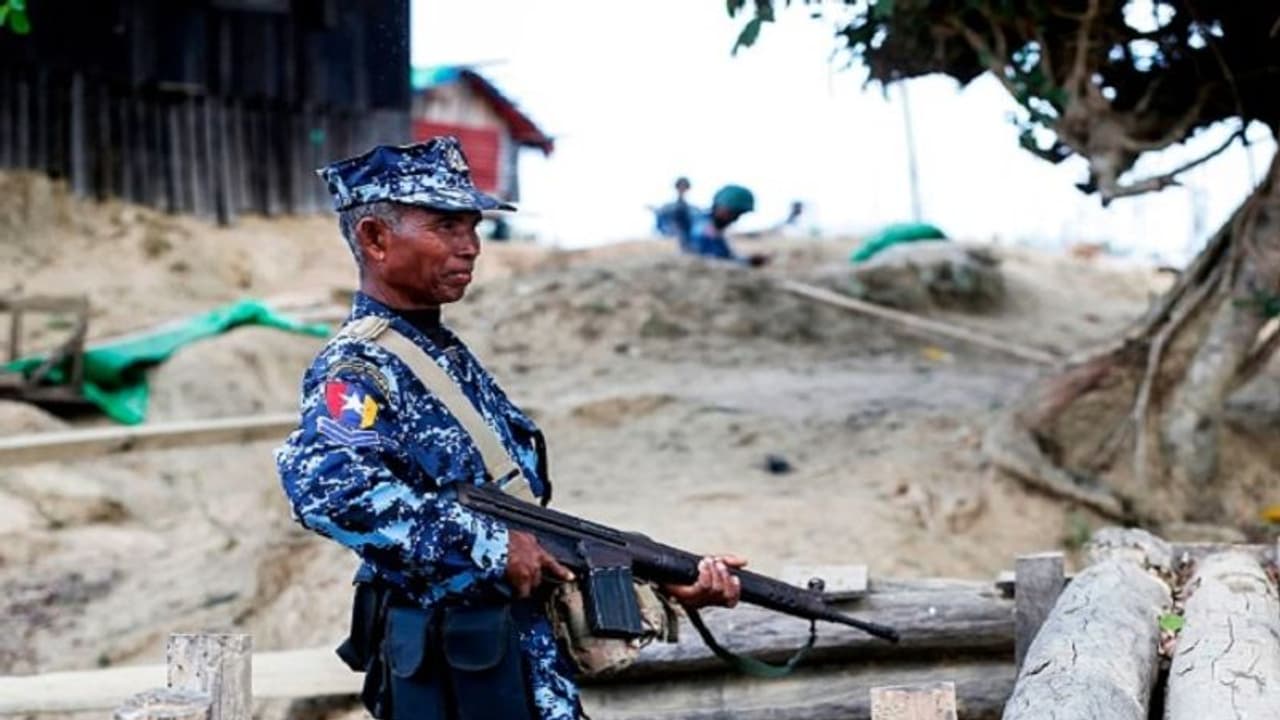Around 350 militants from the Arakan Army stormed four police stations in the northern Rakhine State on Friday killing 13 policemen and wounding nine others. The Myanmar government ordered its army to launched a crackdown on the Rakhine rebels
Expressing concern over the deteriorating situation in Myanmar's restive Rakhine State, a senior UN official has urged all sides to intensify efforts to find a peaceful solution to one of the world's worst refugee crises.
Acting Resident Coordinator and Humanitarian Coordinator for Myanmar Knut Ostby said he was "deeply concerned" over the January 4 violence in which 13 Myanmar police officers were killed in raids by ethnic Rakhine rebels.
Around 350 militants from the Arakan Army stormed four police stations in the northern Rakhine State on Friday, "killing 13 policemen and wounding nine others", according to a statement released by the Army chief's office.
Myanmar government ordered the military to launch operations against the Buddhist rebels. The ongoing attacks come amid failed and postponed repatriation attempts of Rohingya refugees and infiltration of Rohingya militants in neighbouring countries such as India. Myanmar struggles to maintain peace in the country even with the help of the UN.
Ostby is "deeply concerned about the situation in northern and central Rakhine State" where an estimated 4,500 people have been displaced so far due to fighting between the Arakan Army and Myanmar's security forces, Stephane Dujarric, Spokesman for UN Secretary-General Antonio Guterres, told reporters on Tuesday.
Dujarric said Ostby was shocked by the reports of attacks on January 4, regrets the loss of life and offers his deepest sympathies to the families of the police officers who were killed.
Ostby urges all sides to ensure the protection of all civilians and uphold their responsibilities under International Humanitarian and Human Rights Law.
He also appeals to all sides to intensify efforts to find a peaceful solution to the situation and to ensure humanitarian access to all people affected by the violence, Dujarric said.
"The United Nations has been in close contact with the Myanmar authorities in recent weeks and has offered to support ongoing efforts to respond to the humanitarian needs of those affected by the violence," Dujarric said.
According to the UN estimates, nearly 700,000 minority Rohingya Muslims have fled to Bangladesh to escape violence in Myanmar's Rakhine State since August 25 last year when the army launched a military crackdown.
Myanmar does not recognise Rohingya as an ethnic group and insists that they are Bangladeshi migrants living illegally in the country.
The UN described the atrocities by the Myanmar military on Rohingya refugees as a textbook example of ethnic cleansing while the rights groups called it a genocide.
Buddhist-majority Myanmar, however, rejects the charge, saying its security forces launched a counter-insurgency operation on August 25 in response to Rohingya militant attacks.
There are over 20 conflicts festering Myanmar’s borders, some of which date back 70 years to when the nation declared independence from colonial power Britain.
